 W
WJulius Arigi was a flying ace of the Austro-Hungarian Empire in World War I with a total of 32 credited victories. He was Austro-Hungary's most highly decorated ace. His victory total was second only to Godwin von Brumowski. Arigi was considered a superb natural pilot. He was also a technical innovator responsible for engineering changes in the aircraft he flew.
 W
WGottfried Freiherr von Banfield was the most successful Austro-Hungarian naval aeroplane pilot in the First World War. He was known as the 'Eagle of Trieste' and was the last person in history to wear the Military Order of Maria Theresa. He scored 9 aerial victories during the war, making him one of the only Flying aces who flew a flying boat to five or more victories.
 W
WFeldwebel Eugen Bönsch was a World War I flying ace credited with 16 aerial victories.
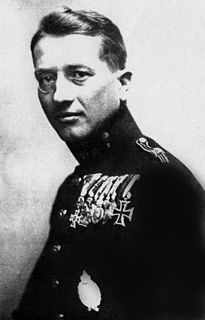 W
WGodwin von Brumowski was the most successful fighter ace of the Austro-Hungarian Air Force during World War I. He was officially credited with 35 air victories, with 8 others unconfirmed because they fell behind Allied lines. Just before the war ended, von Brumowski rose to command of all his country's fighter aviation fighting Italy on the Isonzo front.
 W
WFeldwebel Andreas Dombrowski was a World War I flying ace credited with six aerial victories. He was born in Mahrisch-Ostrau.
 W
WLeutnant Franz Gräser was an Austro-Hungarian World War I flying ace credited with 18 aerial victories.
 W
WKurt Gruber was an Austro-Hungarian flying ace during the First World War who held the rank of Offiziersstellvertreter. He was credited with eleven aerial victories, 5 shared with other pilots.
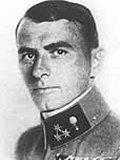 W
WOberst Adolf Heyrowsky, was a career officer in the Austro-Hungarian military who turned to aviation. He became an accredited flying ace during World War I, with twelve aerial victories scored despite the fact he was a reconnaissance pilot instead of flying fighters. The units he flew in and commanded had long range recon and ground attacks as their primary mission.
 W
WOberleutnant Otto Jäger was a World War I flying ace credited with seven aerial victories.
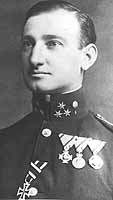 W
WHauptmann Otto Jindra was an Austro-Hungarian flying ace during World War I, credited with nine aerial victories while flying as an aerial observer. His abilities as both leader and administrator led to his accelerated promotion and appointments to command of aviation units despite his lack of pilot's credentials. After World War I and Austria-Hungary both ended, Jindra became a major mover in founding a Czechoslovakian air arm, which he eventually rose to command.
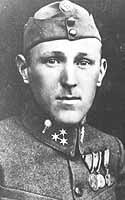 W
WFeldwebel Alexander Kasza was an Austro-Hungarian World War I flying ace credited with six aerial victories.
 W
WKarl Kaszala was an Austro-Hungarian World War I flying ace credited with eight aerial victories who held the rank of Offiziersstellvertreter.
 W
WLieutenant József Kiss de Elemér et Ittebe was a World War I flying ace for the Austro-Hungarian Empire. He was credited with 19 aerial victories. He was the most successful Hungarian ace in the war.
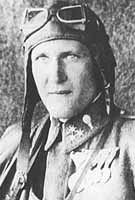 W
WJulius Kowalczik was a World War I flying ace credited with five aerial victories who held the rank of Offiziersstellvertreter.
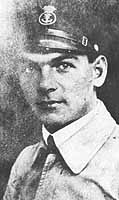 W
WFregattenleutnant Friedrich Lang was a World War I flying ace credited with five aerial victories. He was one of only two naval aces of the Austro-Hungarian Empire.
 W
WStabfeldwebel Johann Lasi was a World War I Austro-Hungarian flying ace, a Croat by ethnicity, credited with five aerial victories on 22 Aug 1916, while acting as a rear gunner for Julius Arigi. Only an officer could man the rear gun but Arigi could not find one that day and had asked 25-year-old Lasi who was a mechanic at the time.
 W
WOberleutnant Frank Linke-Crawford, was the fourth-ranking ace of the Austro-Hungarian Air Force during World War I, with 27 victories.
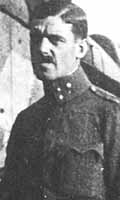 W
WOberleutnant Béla Macourek was a World War I flying ace credited with five aerial victories. Postwar, he served in the Hungarian military and even changed his surname to Maklary.
 W
WOberleutnant Kurt Nachod was a World War I flying ace credited with five aerial victories.
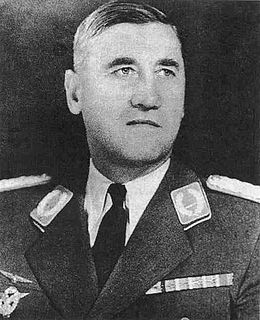 W
WMiroslav (Friedrich) Navratil was a Croatian soldier, pilot, and general who served in the armies of Austria-Hungary, the Kingdom of Yugoslavia, and the Independent State of Croatia.
 W
WOberleutnant Karl Patzelt was a World War I flying ace credited with five aerial victories.
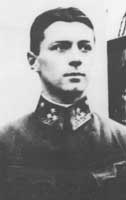 W
WFranz Peter was an Austrian flying ace credited with six aerial victories in World War I while flying for Austria-Hungary's Imperial and Royal Aviation Troops.
 W
WStabfeldwebel Johann Risztics was the Austro-Hungarian World War I flying ace credited with seven reliably confirmed aerial victories. During 1918, Risztics formed a strong friendship with fellow pilots Fredrich Hefty and Ferdinand Udvardy. Amongst the airmen of Flik 42J, the trio became known as the Arany Triumviratus.
 W
WLieutenant Alois Rodlauer was a World War I flying ace credited with five aerial victories.
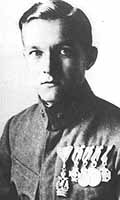 W
WOberleutnant Franz Rudorfer was an Austro-Hungarian World War I flying ace credited with eleven confirmed and two unconfirmed aerial victories.
 W
WRoman Oto Kažimir Schmidt or Roman Šmidt was a World War I flying ace of the Austro-Hungarian Aviation Troops, credited with six aerial victories.
 W
WRaoul Stojsavljevic was an Austro-Hungarian World War I flying ace credited with ten aerial victories. His later career took him to postwar service in aviation both military and civilian. His younger sister was the painter Mileva Roller and her husband was the artist Alfred Roller (1864–1935).
 W
WOberleutnant Ernst Strohschneider was an Austro-Hungarian flying ace during World War I. He was credited with 15 confirmed aerial victories during his rise to the simultaneous command of two fighter squadrons. He died in a flying accident on 21 March 1918.
 W
WOberleutnant Alexander Tahy was a World War I flying ace credited with eight aerial victories.